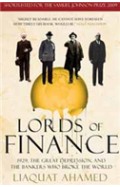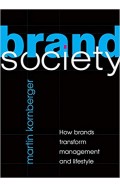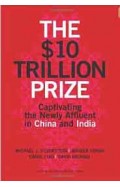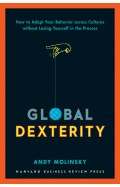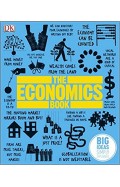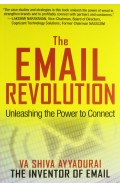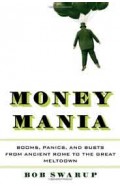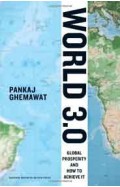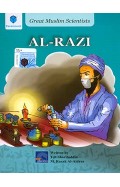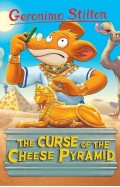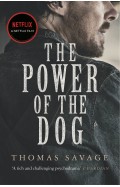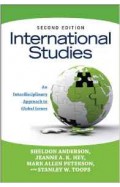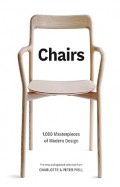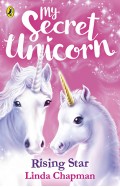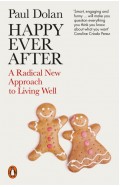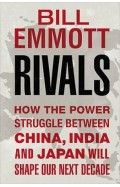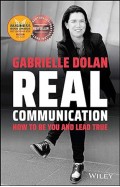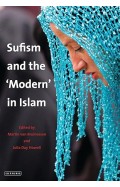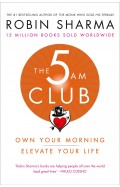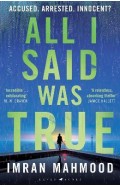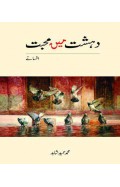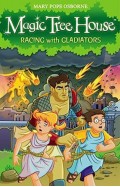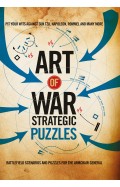- Home
- Business & Management
- Business & Economics
- Poor Economics: The Surprising Truth about Life on Less Than $1 a Day
Poor Economics: The Surprising Truth about Life on Less Than $1 a Day
By: Abhijit Banerjee
-
Rs 2,515.50
- Rs 2,795.00
- 10%
You save Rs 279.50.
Due to constant currency fluctuation, prices are subject to change with or without notice.
'Refreshingly original, wonderfully insightful . . . an entirely new perspective' Guardian
Why would a man in Morocco who doesn't have enough to eat buy a television?
Why do the poorest people in India spend 7 percent of their food budget on sugar?
Does having lots of children actually make you poorer?
This eye-opening book overturns the myths about what it is like to live on very little, revealing the unexpected decisions that millions of people make every day. Looking at some of the most paradoxical aspects of life below the poverty line - why the poor need to borrow in order to save, why incentives that seem effective to us may not be for them, and why, despite being more risk-taking than high financiers, they start businesses but rarely grow them - Banerjee and Duflo offer a new understanding of the surprising way the world really works.
Winner of the FT Goldman Sachs Business Book of the Year Award 2011
| Book | |
| What's in the Box? | 1 x Poor Economi Barefoot Hedgefund Managers DIY Doors and the Surpring Truth about Life on less than 1 a Day |
'Refreshingly original, wonderfully insightful . . . an entirely new perspective' Guardian
Why would a man in Morocco who doesn't have enough to eat buy a television?
Why do the poorest people in India spend 7 percent of their food budget on sugar?
Does having lots of children actually make you poorer?
This eye-opening book overturns the myths about what it is like to live on very little, revealing the unexpected decisions that millions of people make every day. Looking at some of the most paradoxical aspects of life below the poverty line - why the poor need to borrow in order to save, why incentives that seem effective to us may not be for them, and why, despite being more risk-taking than high financiers, they start businesses but rarely grow them - Banerjee and Duflo offer a new understanding of the surprising way the world really works.
Winner of the FT Goldman Sachs Business Book of the Year Award 2011
Poor Economics: The Surprising Truth about Life on Less Than $1 a Day
By: Abhijit Banerjee
Rs 2,515.50 Rs 2,795.00 Ex Tax :Rs 2,515.50
Zubin Mehta: A Musical Journey (An Authorized Biography)
By: VOID - Bakhtiar K. Dadabhoy
Rs 892.50 Rs 1,050.00 Ex Tax :Rs 892.50
Lords of Finance 1929 The Great Depression And The Bankers Who Broke The World
By: Liaquat Ahamed
Rs 1,355.75 Rs 1,595.00 Ex Tax :Rs 1,355.75
Chettinad Kitchen Food And Flavours From South India
By: Alamelu Vairavan
Rs 675.75 Rs 795.00 Ex Tax :Rs 675.75
The 10 Trillion Prize Captivating thely Affluent in China and India
By: Michael J. Silverstein
Rs 1,865.75 Rs 2,195.00 Ex Tax :Rs 1,865.75
Global Dexterity: How to Adapt Your Behavior Across Cultures without Losing Yourself in the Process
By: Andy Molinsky
Rs 1,950.75 Rs 2,295.00 Ex Tax :Rs 1,950.75
Poor Economics: The Surprising Truth about Life on Less Than $1 a Day
By: Abhijit Banerjee
Rs 2,515.50 Rs 2,795.00 Ex Tax :Rs 2,515.50
The Great Degeneration: How Institutions Decay and Economies Die
By: Niall Ferguson
Rs 2,035.75 Rs 2,395.00 Ex Tax :Rs 2,035.75
Email Revolution : Unleashing The Power To Connect
By: V. A. Shiva Ayyadurai
Rs 862.50 Rs 1,150.00 Ex Tax :Rs 862.50
Money Mania Booms Panics and Busts from Ancient Rome to the Great Meltdown
By: Bob Swarup
Rs 2,252.50 Rs 2,650.00 Ex Tax :Rs 2,252.50
World 30 Global Prosperity and How To Achieve It
By: Pankaj Ghemawat
Rs 7,305.75 Rs 8,595.00 Ex Tax :Rs 7,305.75
Lords of Finance 1929 The Great Depression And The Bankers Who Broke The World
By: Liaquat Ahamed
Rs 1,355.75 Rs 1,595.00 Ex Tax :Rs 1,355.75
Chettinad Kitchen Food And Flavours From South India
By: Alamelu Vairavan
Rs 675.75 Rs 795.00 Ex Tax :Rs 675.75
THE SECRET SEVEN: GOOD WORK SECERET SEVEN
By: Enid Blyton
Rs 1,047.50 Rs 2,095.00 Ex Tax :Rs 1,047.50
Choosing Theo The Clecanian Series: Book 1
By: Victoria Aveline
Rs 7,645.75 Rs 8,995.00 Ex Tax :Rs 7,645.75
Avatar: The Last Airbender--North and South Part One
By: Gene Luen Yang
Rs 2,460.75 Rs 2,895.00 Ex Tax :Rs 2,460.75
The Prisoner: The bestselling Richard and Judy Book Club pick for 2023
By: B.A. Paris
Rs 2,245.50 Rs 2,495.00 Ex Tax :Rs 2,245.50
Wild - A gripping rainforest adventure from the multi award-winning author of Refugee 8 7
By: Ele Fountain
Rs 2,035.75 Rs 2,395.00 Ex Tax :Rs 2,035.75
The Widow - An Absolutely Unputdownable and Gripping Psychological Thriller
By: K. L. Slater
Rs 2,120.75 Rs 2,495.00 Ex Tax :Rs 2,120.75
World's Best Beers - 1000 Unmissable Brews from Portland to Prague
By: Ben McFarland
Rs 2,545.75 Rs 2,995.00 Ex Tax :Rs 2,545.75
Instructional Leadership in the Content Areas
By: Jo Beth Jimerson
Rs 8,095.50 Rs 8,995.00 Ex Tax :Rs 8,095.50
Geronimo Stilton: The Curse of the Cheese Pyramid
By: Geronimo Stilton
Rs 1,147.50 Rs 2,295.00 Ex Tax :Rs 1,147.50
Vax-Unvax - Let the Science Speak
By: Robert F. Kennedy Jr.
Rs 6,295.50 Rs 6,995.00 Ex Tax :Rs 6,295.50
The Power of the Dog: NOW A NETFLIX FILM STARRING BENEDICT CUMBERBATCH
By: Thomas Savage
Rs 1,950.75 Rs 2,295.00 Ex Tax :Rs 1,950.75
International Studies: An Interdisciplinary Approach to Global Issues
By: Various
Rs 6,030.75 Rs 7,095.00 Ex Tax :Rs 6,030.75
Harry Potter and the Chamber of Secrets
By: J. K. Rowling
Rs 6,745.50 Rs 7,495.00 Ex Tax :Rs 6,745.50
Crooks: The Stories Behind the Headlines
By: Paul Williams
Rs 3,865.50 Rs 4,295.00 Ex Tax :Rs 3,865.50
Liberation - Inspired by the Incredible True Story of World War II's Greatest Heroine Nancy Wake
By: Imogen Kealey
Rs 1,047.50 Rs 2,095.00 Ex Tax :Rs 1,047.50
Until I Love Myself, Vol. 1 - The Journey of a Nonbinary Manga Artist
By: Poppy Pesuyama
Rs 2,800.75 Rs 3,295.00 Ex Tax :Rs 2,800.75
Chairs - 1,000 Masterpieces of Modern Design, 1800 to the Present
By: Charlotte Fiell
Rs 9,445.50 Rs 10,495.00 Ex Tax :Rs 9,445.50
Milk and Honey - 10th Anniversary Collector's Edition
By: Rupi Kaur
Rs 4,675.50 Rs 5,195.00 Ex Tax :Rs 4,675.50
The War on Guns: Arming Yourself Against Gun Control Lies
By: John R. Lott Jr
Rs 2,507.50 Rs 2,950.00 Ex Tax :Rs 2,507.50
Happy Ever After: A Radical New Approach to Living Well - Paperback
By: Paul Dolan
Rs 2,120.75 Rs 2,495.00 Ex Tax :Rs 2,120.75
Rivals - How the Power Struggle Between China, India and Japan Will Shape Our Next Decade
By: Bill Emmott
Rs 1,270.75 Rs 1,495.00 Ex Tax :Rs 1,270.75
Usborne story Book Level 3 A Midsummer Nights Dream
By: Mairi Mackinnon
Rs 1,100.75 Rs 1,295.00 Ex Tax :Rs 1,100.75
Real Communication - How To Be You and Lead True
By: Gabrielle Dolan
Rs 3,395.75 Rs 3,995.00 Ex Tax :Rs 3,395.75
Sufism and the 'Modern' in Islam
By: Martin Van Bruinessen
Rs 1,695.75 Rs 1,995.00 Ex Tax :Rs 1,695.75
The New Silk Roads: The Present and Future of the World
By: Peter Frankopan
Rs 1,015.75 Rs 1,195.00 Ex Tax :Rs 1,015.75
The Last Murder at the End of the World
By: Stuart Turton
Rs 3,415.50 Rs 3,795.00 Ex Tax :Rs 3,415.50
Deathcaster: 4 (Shattered Realms, 4)
By: Cinda Williams Chima
Rs 1,015.75 Rs 1,195.00 Ex Tax :Rs 1,015.75
Daughters of War: the most spellbinding escapist historical fiction novel from the No. 1 Sunday Times bestseller: Book 1 (The Daughters of War)
By: Dinah Jefferies
Rs 1,440.75 Rs 1,695.00 Ex Tax :Rs 1,440.75
Magic Tree House 13: Racing With Gladiators
By: Mary Pope Osborne
Rs 985.50 Rs 1,095.00 Ex Tax :Rs 985.50
Art of War Strategic Puzzles
By: Richard Wolfrik Galland
Rs 1,695.75 Rs 1,995.00 Ex Tax :Rs 1,695.75
Between Two Kingdoms - What Almost Dying Taught Me about Living
By: Suleika Jaouad
Rs 2,335.50 Rs 2,595.00 Ex Tax :Rs 2,335.50
Zubin Mehta: A Musical Journey (An Authorized Biography)
By: VOID - Bakhtiar K. Dadabhoy
Rs 892.50 Rs 1,050.00 Ex Tax :Rs 892.50
Poor Economics: The Surprising Truth about Life on Less Than $1 a Day
By: Abhijit Banerjee
Rs 2,515.50 Rs 2,795.00 Ex Tax :Rs 2,515.50
Lords of Finance 1929 The Great Depression And The Bankers Who Broke The World
By: Liaquat Ahamed
Rs 1,355.75 Rs 1,595.00 Ex Tax :Rs 1,355.75
Chettinad Kitchen Food And Flavours From South India
By: Alamelu Vairavan
Rs 675.75 Rs 795.00 Ex Tax :Rs 675.75












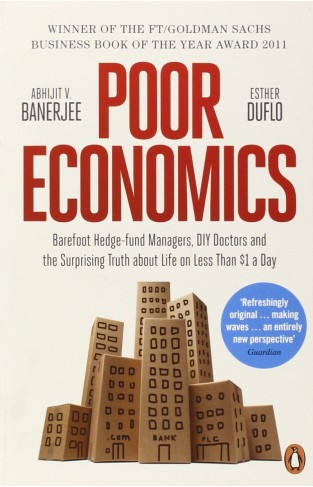
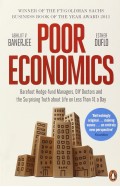
-120x187.jpg?q6)





